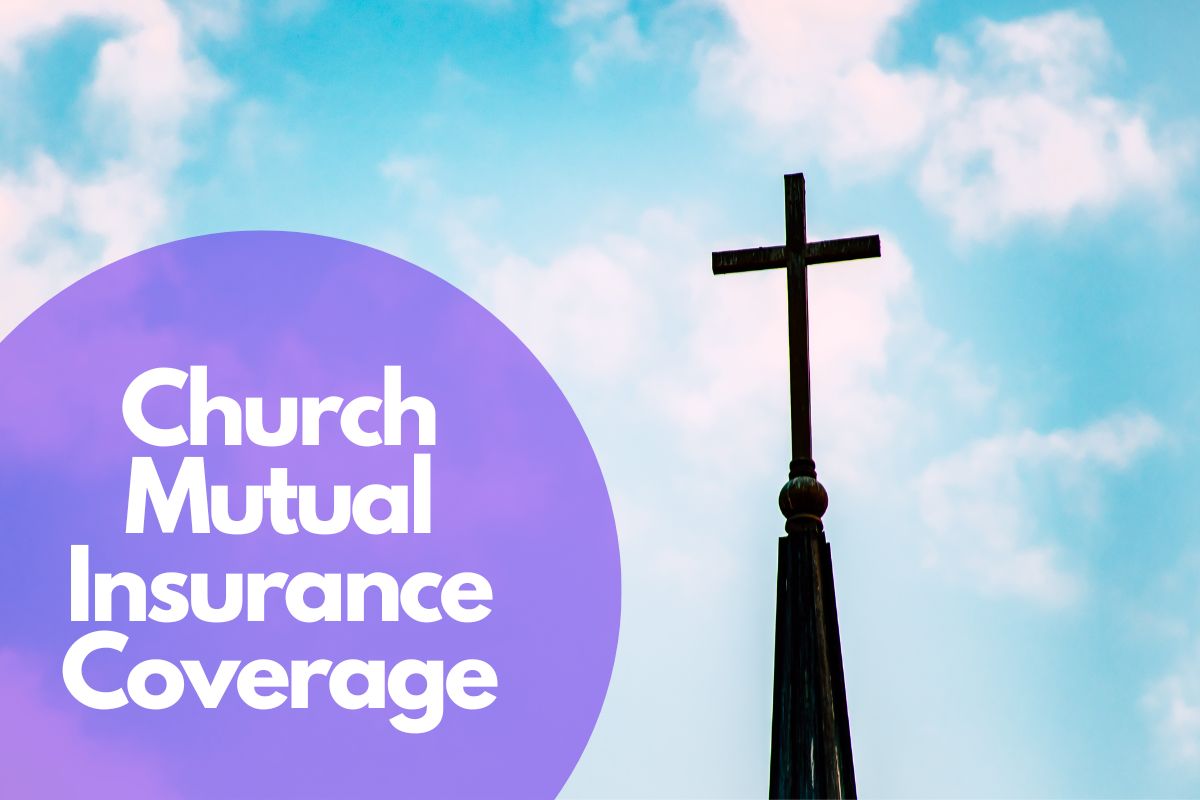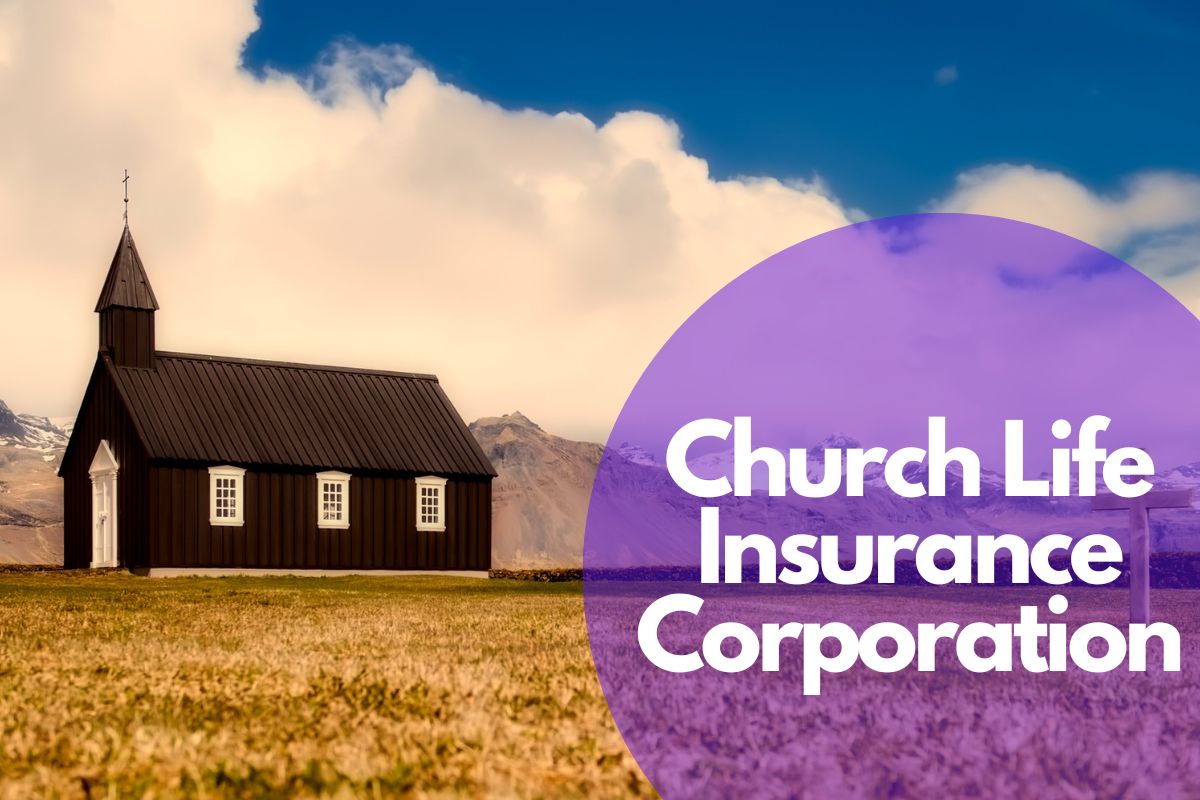Churches are often seen as safe havens for their members, but unfortunately, they are not immune to risks and liabilities. In today’s world, churches face many risks, such as theft, vandalism, and even violence.
That’s why it’s important for churches to have proper insurance coverage. This article will discuss the importance of Church Security Insurance, what it is, how it works, and the different types of policies available to churches.
Church Security Insurance
Church Security Insurance is a type of insurance policy that provides coverage for churches against various risks and liabilities.
It is designed to protect churches from financial losses arising from unexpected events that could damage the church property, harm church members, or cause any other form of liability. This type of insurance policy is a critical part of church risk management.
Church Security Insurance policies typically cover many risks, including property damage, theft, vandalism, personal injury, and liability claims.
The coverage provided by each policy may vary, but generally, they provide protection against these types of risks.
Different types of Church Security Insurance policies are available, including general liability insurance, property insurance, and workers’ compensation insurance.
General liability insurance covers bodily injury, property damage, and personal injury claims. Property insurance, on the other hand, covers the physical assets of the church, including buildings, equipment, and furnishings.
Workers’ compensation insurance provides coverage for employees who may be injured while performing their duties for the church.
What To Consider When Choosing Church Security Insurance
When choosing Church Security Insurance, it’s important to consider several factors such as the size of the church, the number of employees, and the types of activities the church engages in.
Additionally, it’s crucial to compare the coverage and costs of different policies before deciding.
Getting Church Security Insurance is relatively straightforward. Most insurance companies offer Church Security Insurance policies, and some specialize in covering religious organizations.
Churches can work with insurance agents to obtain quotes and compare policies to find the best coverage for their needs and budget.
It’s important to note that Church Security Insurance policies do not cover intentional acts of harm or illegal activities. Churches must prevent such incidents and implement risk management strategies to minimize the likelihood of such events.
Church Security Insurance is essential to protecting churches against risks and liabilities. It provides coverage for property damage, theft, personal injury, and liability claims.
By understanding the different types of policies available and the factors to consider when choosing one, churches can ensure they have the necessary protection to continue their mission of serving their members and communities.
Importance Of Church Security Insurance
1. Protection Against Property Damage
Church Security Insurance provides coverage for damage to church property caused by events such as fire, flood, and natural disasters.
2. Liability Coverage
Church Security Insurance can protect churches against liability claims that arise from injuries or damages that occur on church property.
3. Personal Injury Coverage
The policy can cover personal injury claims, such as slip and fall accidents on church premises.
4. Protection Against Theft And Vandalism
Church Security Insurance can provide coverage for theft and vandalism of church property, including equipment, furniture, and other assets.
5. Legal Defense
The policy can provide coverage for legal expenses incurred in defending the church against a lawsuit or liability claim.
6. Workers’ Compensation Coverage
Church Security Insurance can provide coverage for employees who are injured while performing their duties for the church.
7. Peace of Mind
Having Church Security Insurance gives church members peace of mind, knowing that the church is protected against unexpected events that could result in financial losses.
8. Continued Operations
In the event of an unforeseen event such as a fire, flood, or theft, Church Security Insurance can help churches continue their operations and provide services to their members.
9. Risk Management
Church Security Insurance can be part of a comprehensive risk management plan that helps churches identify and manage risks and minimize potential losses.
10. Compliance
Some states require churches to have certain types of insurance coverage, including workers’ compensation insurance, to comply with state laws. Church Security Insurance can help churches meet these requirements and avoid penalties.
How Does Church Security Insurance Work?
Church Security Insurance works like any other insurance policy. It provides coverage for risks that churches face, such as property damage, liability claims, and personal injury claims.
The policy typically has a coverage limit, the maximum amount the insurance company will pay for a claim. The church pays a premium to the insurance company for the coverage provided by the policy.
If the policy covers an unexpected event, the church must file a claim with the insurance company. The insurance company will investigate the claim and determine if it is covered by the policy.
If the claim is covered, the insurance company will pay out the claim up to the policy’s coverage limit. If the claim exceeds the coverage limit, the church may be responsible for paying the remaining amount.
The Cost Of Church Security Insurance
The cost of Church Security Insurance depends on several factors, including the size of the church, the types of activities it engages in, and the coverage limit and deductible selected.
The church can work with an insurance agent to obtain quotes and compare policies from different insurance companies to find the best coverage and rates for their needs and budget.
It’s important to note that Church Security Insurance policies may have exclusions, limitations, and conditions.
It’s essential for churches to carefully review and understand the policy’s terms and conditions to ensure they have the coverage they need and to avoid surprises if a claim arises.
Risks And Liabilities For Churches Security Insurance
Churches face various risks and liabilities, and Church Security Insurance can help mitigate these risks. Here’s an overview of some common risks and liabilities for churches that Church Security Insurance can help cover:
1. Property Damage
Churches can face property damage from natural disasters such as fires, floods, or storms, which can be costly to repair or replace. Church Security Insurance can provide coverage for such damages.
2. Liability Claims
Churches can face liability claims from injuries or damages on church property. For example, a person may slip and fall in the church parking lot or suffer injuries during a church event. Church Security Insurance can provide coverage for these types of claims.
3. Personal Injury Claims
Church members or employees can suffer personal injuries while on church property. Church Security Insurance can cover personal injury claims such as slip and fall accidents.
4. Theft And Vandalism
Churches may face theft or vandalism of their property, including equipment, furniture, and other assets. Church Security Insurance can provide coverage for theft and vandalism.
5. Professional Liability
Churches may have employees or volunteers who provide professional services such as counseling or advice. Church Security Insurance can cover professional liability claims arising from such services.
6. Employment Practices Liability
Churches may face employment-related claims such as discrimination, harassment, or wrongful termination. Church Security Insurance can provide coverage for these types of claims.
7. Cybersecurity Risks
Churches that use technology and store sensitive information, such as donor information or financial records, may face cybersecurity risks, such as data breaches. Church Security Insurance can provide coverage for such risks.
By having Church Security Insurance, churches can protect themselves against these and other risks and liabilities, which can help them continue their operations and serve their communities with peace of mind.
Types of Church Security Insurance
Church Security Insurance policies can vary depending on the insurance company and the church’s specific needs. Here are some common types of Church Security Insurance policies:
1. Property Insurance
Property Insurance covers damage to the church’s property, including buildings, equipment, furniture, and other assets. This policy typically covers fire, flood, and natural disasters.
2. General Liability Insurance
General Liability Insurance provides coverage for bodily injury and property damage claims arising from incidents on church premises, such as slip and fall accidents. This policy can also cover claims related to advertising injury or personal injury.
3. Workers’ Compensation Insurance
Workers’ Compensation Insurance provides coverage for employees who are injured on the job. This policy can cover medical expenses, lost wages, and rehabilitation costs.
4. Professional Liability Insurance
Professional Liability Insurance, also known as Errors and Omissions Insurance, covers claims related to professional services provided by church employees or volunteers. This policy can cover claims related to advise or counseling services.
5. Employment Practices Liability Insurance
Employment Practices Liability Insurance provides coverage for claims related to employment practices, such as discrimination, harassment, or wrongful termination.
6. Cyber Liability Insurance
Cyber Liability Insurance provides coverage for risks related to cyber attacks, data breaches, and other cyber threats. This policy can cover costs related to data recovery, legal expenses, and notification costs.
7. Directors and Officers Liability Insurance
Directors and Officers Liability Insurance provides coverage for claims against church directors and officers for wrongful acts, such as mismanagement or breach of duty.
The coverage offered by each type of policy may vary depending on the insurance company and the specific terms of the policy.
Churches should work with an insurance agent to understand their needs and select the appropriate coverage to protect their operations and assets.
Conclusion
Church Security Insurance is an essential investment for churches. It provides peace of mind to church members, protects against financial losses, and helps churches continue their mission in the event of unexpected events.
By understanding the importance of Church Security Insurance, the different types of policies available, and how to choose the right one, churches can ensure they have the necessary protection to continue their work for their members and communities.







